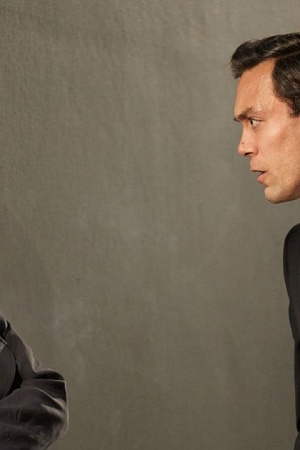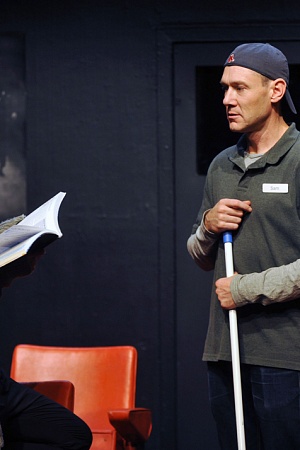Brothers Wreck (Odeon Theatre) ★★★★
One would have hoped that in the four years since Jada Alberts’s fine début play Brothers Wreck premièred at Belvoir Street that its concern with the issue of Indigenous despair would have come to feel less vital, and yet the problem is as acute as ever. This week we learned that every child in detention in the Northern Territory, where Brothers Wreck is set, is Indigenous. Meanwhile, Aboriginal and Torres Straight Islander people are ending their own lives at a rate at least twice that of the non-Indigenous population, with men under the age of thirty-five most likely to do so.
Brothers Wreck opens with such a suicide, offstage but otherwise as harrowingly depicted as you could wish. Typically of intergenerational trauma, and the virus-like creep of hopelessness, six months later it is Joe’s cousin and friend, Ruben (Dion Williams), who is at risk. Tormented by guilt, the nature of which Alberts adroitly teases out over the course of the play, Ruben has withdrawn into a kind of dissociative state. His interactions with sister Adele (Leonie Whyman) and friend (and Adele’s boyfriend) Jarrod (Nelson Baker) are characterised by evasion and violence. He is on bail, having assaulted a policeman, and is receiving counselling from David (Trevor Jamieson), a gruff but father-like parole officer who draws Ruben’s ire for his perceived class privileges. Ruben calls him ‘Stuart Park’, a reference to the well-to-do Darwin suburb, telling him, ‘You had choices’. One of the great strengths of Alberts’s play is the way it complicates this statement, illustrating the grossly unequal distribution of opportunity and social mobility in Australian society but not losing sight of the power of individual or familial agency.
Family is everything. While the engine of the play’s drama is Ruben’s anger, it is his quietly determined sister and rambunctious, iron-willed aunt Petra (Lisa Flanagan, the only actor here reprising her role from the 2014 production) who are the vehicle’s chassis. In their resolve and generosity of spirit, they hold everything together without absolving the men of their responsibilities to the family and to themselves, shown for example by Petra’s fierce insistence that Ruben visit his adopted mother in hospital no matter the depression and alcoholism he has sunk into.
Continue reading for only $10 per month. Subscribe and gain full access to Australian Book Review. Already a subscriber? Sign in. If you need assistance, feel free to contact us.















Leave a comment
If you are an ABR subscriber, you will need to sign in to post a comment.
If you have forgotten your sign in details, or if you receive an error message when trying to submit your comment, please email your comment (and the name of the article to which it relates) to ABR Comments. We will review your comment and, subject to approval, we will post it under your name.
Please note that all comments must be approved by ABR and comply with our Terms & Conditions.